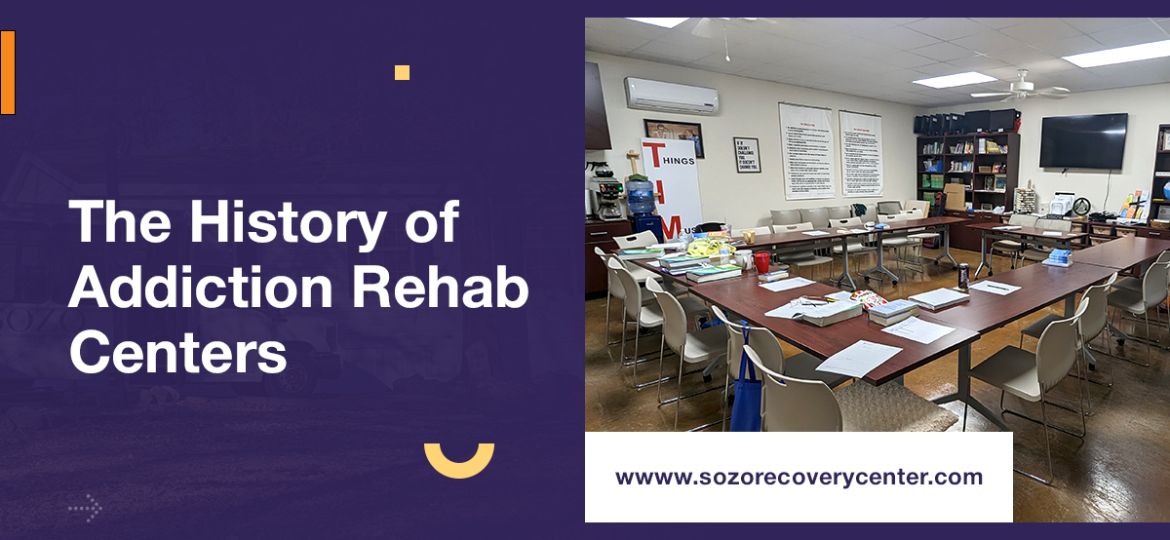
Addiction recovery treatment is easily accessible these days. People struggling to overcome substance abuse can simply visit a trusted rehab near their location and join recovery programs. Medical professionals and therapists even provide personalized care and support to help individuals attain lasting sobriety. Thanks to the research and surveys that have proven this by showcasing significant success rates.
But have you ever wondered how life was before the evolution of addiction rehab centers in Arkansas and around the world?
In this blog, we would like to share the journey of a rehabilitation facility – from its early beginnings to its modern advancements.
Early Beginnings: Exploring the Foundations of Our JourneyEarly Beginnings
Drug and alcohol addiction isn’t a new thing. It has been there for years, affecting individuals and communities long before modern rehabilitation centers existed. Just the only difference is that people in the past won’t consider it as a disease. They believed that individuals chose to rely on substances, leading to chaotic lives. Based on the theory shared by the ancient Greek philosopher, Aristotle, addiction was viewed as “incontinence of will.”
Later, through extensive research scientists have come to a conclusion that individuals getting inclined towards drugs or alcohol have proper due to various factors, including genetic predisposition, environmental influences, and psychological triggers. Benjamin Rush, a signer of the Declaration of Independence and an early addiction scientist was one among them to talk about addiction initially.
This understanding paved the way for inventing treatments to overcome addiction.
The First Rehab
In 1930, the federal government constructed a drug rehabilitation center in Kentucky. Jazz musicians were the first to undergo formal addiction treatment in this US Narcotic Farm. While they opted for this, researchers were busy learning more about Opioid addiction. Some popular personalities were Sonny Rollins, Howard McGhee, and Chet Baker. The best part of their treatment was they could play music for maximum 6 hours in a day and simultaneously participate in recovery programs. Even they were paid in Morphine for their active participation in experiments in addiction.
It was when the scientists came to the conclusion that keeping a person busy can be an effective way to treat substance abuse disorder. However, rewarding them with Morphine was not a good decision.
The Implementation of Synanon Therapy
In the 1950s, a new era of addiction treatment emerged. Synanon, a group known for its several novel approaches to sustained recovery from substance use disorder, came into existence. Their methodology involves controversial practices where members publicly confront each other’s flaws. However, this attempt led to its serious downfall, marking a dark chapter in addiction treatment history.
Holistic Approaches
Finally, in the 1990s the shift towards holistic approaches and personalized treatment methods transformed addiction recovery centers worldwide, including those in Arkansas. Medical specialists started crafting effective treatment plans tailored to individual needs. Based on a comprehensive medical assessment, the team began to offer medical detox, therapy, life skills training, and aftercare support. This dual-diagnosis treatment has been driving significant results to date.
Modern Rehabilitation Centers
In recent years, addiction recovery centers in Arkansas and other states have witnessed a dramatic change in their working standards. These facilities now provide structured environments and robust support systems to facilitate effective addiction management.
In addition to tailored detox treatments, they emphasize evidence-based therapies including cognitive-behavioral therapy (CBT) and dialectical behavior therapy (DBT). While residential treatment remains a priority, they also offer flexible options like outpatient care, partial hospitalization, and intensive outpatient programs.
Moreover, many rehabs recognize the importance of sober living homes in supporting long-term sobriety. Hence, they develop empowering programs that help individuals rediscover hope and prefer independent living.
Conclusion
The journey of drug and alcohol rehabilitation centers reflects their growth, adaption, and strong commitment to helping individuals overcome addiction. Though the beginning was full of challenges, their dedication to innovation and community support has led to the evolution of effective treatment.
With so many substance abuse treatment centers in Hot Springs, Arkansas, SOZO has achieved excellence in transforming the lives of individuals addicted to substances. Our holistic approaches, personalized medical care, and comprehensive treatment methods are the primary reasons to choose our programs. For any queries, feel free to contact us.


